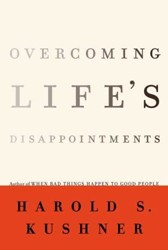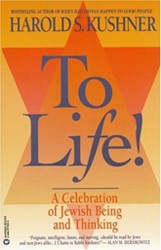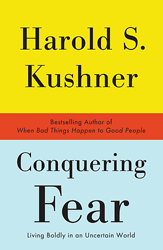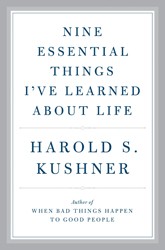The book of Job raises questions at the heart of human existence. Job is an exceptionally good and faithful man to whom terrible things happen for no earthly reason. How can we reconcile the fact that God is good and all-powerful with the fact of Job’s suffering? What does Job’s unjust suffering tell us about the world we live in?
Harold S. Kushner, rabbi emeritus of Temple Israel in Natick, Massachusetts, has grappled with the question of inexplicable suffering in more than a dozen books. In The Book of Job he turns to the subject he had proposed for his dissertation in 1964, only to be told by his adviser, Professor H. L. Ginsberg, that he wasn’t ready. Now, these many years later, Kushner brings his personal experience, his broad scholarship, and Jewish tradition to the subject with a deep understanding of how we can live in a world where the sun shines indiscriminately on the good and the bad.
Kushner explicates the book of Job by first separating the simple fable in which the book is framed from the complex poem at its core. Concisely and clearly, Kushner then presents Job’s situation and the predictable efforts of his friends to help him. But instead of being comforted and accepting his friends’ pious explanations, Job protests. He has led an exemplary life. He demands an explanation from God: Why have all these horrible things happened to me? What are the charges against me?
Then God appears out of the whirlwind. In sweeping and magnificent poetry God lays out for Job God’s creation of the universe, including the sometimes uncontrollable forces of nature — Leviathan — and of the primal urge — Behemoth — forces for both good and bad, at times simultaneously. On hearing about God’s epic creation, Job, at first overwhelmed, puts his hand over his mouth, but later concludes his cataclysmic encounter in seven simple words open to a multitude of linguistic and theological interpretations.
Citing Rabbi Abraham Joshua Heschel, Kushner points out that there is almost no theology in the Tanakh except in the book of Job, which probes universal questions about the nature of God and the morality of the world. Throughout The Book of Job Kushner pushes and prods his readers to explore the possibilities with which this difficult text, with its often obscure vocabulary, challenges us to seek our own responses. Serving as a guide, he reviews the answers of classic commentators, then ends with his own understanding, an understanding persuasive for both theological and personal reasons, an understanding that is moving, comforting, and active.
Kushner’s lifelong experience with and study of the central questions of Job make almost every page of his masterful reading stimulating and often provocative and will turn many readers to the text. Note that Kushner uses the 1980 Jewish Publication Society translation of the Tanakh, not the newer translation, which makes for small differences in interpretation. For Hebrew readers the text is sometimes essential because of Kushner’s own translations, which shed different light on some passages. A full bibliography would have been a worthwhile addition to the book. This is a volume in Schocken and Nextbook’s Jewish Encounters series.
Maron L. Waxman, retired editorial director, special projects, at the American Museum of Natural History, was also an editorial director at HarperCollins and Book-of-the-Month Club.





